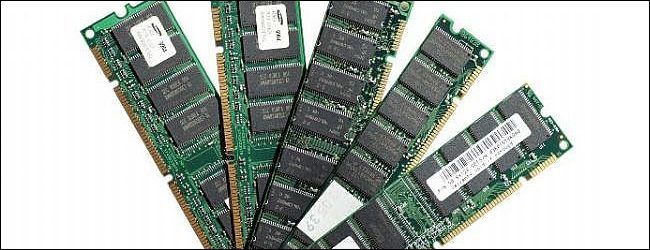Old hardware often necessitates all manner of work arounds--in this case the question at hand is whether or not increasing the page file can compensate for the failure of a physical RAM module.
Today’s Question & Answer session comes to us courtesy of SuperUser—a subdivision of Stack Exchange, a community-driven grouping of Q&A web sites.
The Question
SuperUser reader IMB poses the following question:
I've a 10+ year old XP PC which surprisingly still works however one of the 256MB RAM finally died. Now I am left with just 256MB. As expected the PC became slower however when I tried to increase the page file to min 4GB max 4GB it become quite fast again to an acceptable level. My question now are:
Will it help if I buy more RAM since the current performance is already acceptable, will it be even faster?
Will just having 256MB RAM but 4GB page file have some implications (maybe the HDD is being pounded or something)?
Can IMB squeeze by with his page-file-workaround (in order to avoid drumming up some expensive vintage RAM)?
The Answers
SuperUser contributor Indrek writes:
Accessing primary memory (RAM) normally takes in the order of a nanosecond (10-9 s) while accessing secondary memory (hard drive) takes in the order of a millisecond (10-3 s), making RAM access faster by a factor of 1,000,000 times. So to the extent that RAM is actually full and files are getting written to your hard drive's page file, those operations take 1,000,000 times longer. One would need to check the Task Manager to see what is going on and if RAM is actually full.
Your decision will depend on what you subjectively deem to be acceptable for the task you are using the computer for. You are certainly not using it for office work?
Hans Passants chimes in with some insight into why the computer might feel faster:
The only way your machine could have gotten faster is by the paging file getting relocated to a less fragmented part of the disk when you changed its size. A common problem in general on old XP machines. Get a further possible improvement by using a defrag utility first, then run the SysInternals' PageDefrag tool.
It matters a great deal since you'll be using the paging file a lot more frequently with this little RAM. A fragmented paging file causes a lot more disk head seeks and that's slow.
For more information about the Windows page file, check out: HTG Explains: What is the Windows Page File and Should You Disable It?
Have something to add to the explanation? Sound off in the the comments. Want to read more answers from other tech-savvy Stack Exchange users? Check out the full discussion thread here.

